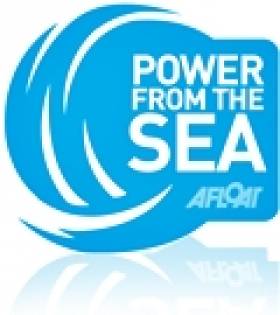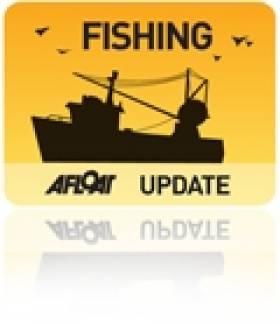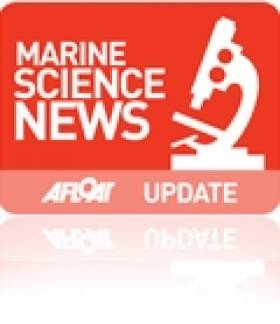Displaying items by tag: Máire GeogheganQuinn
New Scheme to Measure Noise Pollution from Wave Energy
#POWER FROM THE SEA - The Sustainable Energy Authority of Ireland (SEAI) is teaming with IBM in a new project to assess the noise levels of wave energy devices off the Irish coast.
The scheme will see an array of noise sensing equipment such as hydrophones deployed in Galway Bay to monitor the noise levels of wave energy conversion devices in real time, as well as map patterns of marine life in the area.
According to AOL Energy, noise pollution at sea is a chief concern, having a disturbing effect on fish migrations among other marine ecosystems.
The west of Ireland will prove an important case study in this regard, as it hosts one of the world's largest wave energy infrastructures.
"Underwater noise is a global environmental issue that has to be addressed if we are going to take advantage of the huge potential of ocean energy," said EU Commissioner for Research, Innovation and Science, Maire Geoghegan-Quinn.
AOL Energy has more on the story HERE.
EU Fisheries Commissioner Visits Ireland to Discuss Policy
EU Commissioner for Maritime Affairs and Fisheries, Maria Damanaki will visit Ireland this week to discuss reform of the Common Fisheries Policy.
Commissioner Damanaki will speak tomorrow at the Institute of International and European Affairs where she will address Irish stakeholders on the new policy, which aims at preserving fish stocks at sustainable levels by managing fisheries in a responsible, science-based way.
She will also later meet with Minister for Agriculture, Fisheries and Food Simon Coveney.
On Friday she will travel to Galway with EU Commissioner for Research, Innovation and Science, Máire Geoghegan-Quinn, to visit the Marine Institute and participate in a roundtable on maritime policy with representatives of the Irish administration and the Irish maritime sector.
Commissioner Damanaki will also gauge the views of Irish stakeholders on the upcoming Atlantic Strategy under the Integrated Maritime Policy, which the European Commission is currently drawing up.
- EU Commissioner for Maritime Affairs and Fisheries
- Maria Damanaki
- Common Fisheries Policy
- Institute of International and European Affairs
- stakeholders
- sustainable fishing
- fishing
- fisheries
- Minister for Agriculture, Fisheries and Food
- Simon Coveney
- EU Commissioner for Research Innovation and Science
- Máire GeogheganQuinn
- Marine Insitute
- maritime policy
- Atlantic Strategy
- Integrated Maritime Policy
- European Commission
U.S. Nobel Laureate Visits Marine Institute in Galway
The Marine Institute headquarters at Oranmore, Co. Galway was honoured last Saturday (6th November) by a visit from US Energy Secretary Prof. Steven Chu, himself a Nobel Prize-winning physicist and long-time advocate of alternative sources of sustainable energy.
This is the latest in a number of VIP visits to the Institute this year, which have included EU-Commissioner for Research, Innovation and Science Máire Geoghegan-Quinn and the Ambassadors to Ireland of both the USA and the United Kingdom, reflecting the growing international recognition of the Institute as a centre of excellence.
During his visit, Professor Chu was briefed by the Institute's CEO Dr Peter Heffernan and members of his senior management team on the Institute's work regarding ocean renewable energy, seabed observatories and the application of "Smart Technology" to ocean monitoring and climate change through such projects as SmartBay and SmartCoast.
He was also briefed on the results of the Irish National Seabed Survey which, at the time of its execution was the largest civilian mapping project in the world, and was given copies of "The Real Map of Ireland" showing the extent of Ireland's underwater territory.
Of particular interest to Prof. Chu, following the recent oil spill in the Gulf of Mexico, was a discussion on the use of new and developing technologies that might allow the deployment of sensor devices on the seabed to monitor offshore oil wells.































































